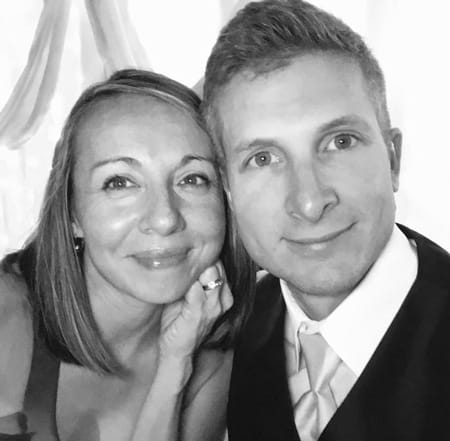The Challenge
Kristen McCurdy was 17 when she underwent her first kidney transplant. It was a successful surgery and her new kidney lasted nearly 19 years, but in August 2016, Kristen found out her kidney function was once again declining.
As her condition worsened, it became difficult for her to do even the simplest tasks without getting out of breath or having to lie down after.
Kristen knew that without a kidney transplant, she would have to start receiving dialysis treatments. Having been on dialysis prior to her first transplant, she wanted to do what was possible to avoid it, because it is a difficult treatment and not always easy for patients to manage. That made a transplant the best option for her.
The Path to UPMC
In November of that year, Kristen underwent a pre-transplant evaluation and was placed on the kidney transplant waiting list. Because she had already received a kidney transplant and was pretty familiar with the process, she knew that a living donor transplant was possible. Her husband, Luke, immediately volunteered to get tested.
Living-donor kidney transplant reduces the shortage of organs because a transplant surgeon takes a healthy kidney from a living person, rather than a deceased donor, and transplants it into the person with the failing kidney. To be a living-kidney donor you must be between the ages of 18 and 69 with no history of:
- Heart disease
- Liver disease, including cirrhosis and hepatitis B and C
- Diabetes
- HIV
- Cancers or other diseases that could complicate the surgery
Living-donor kidney transplant is the best option for those with end-stage renal disease because it allows them to shorten their wait on the list and receive a transplant before their disease progresses further.
Eager to save his wife’s life, Luke underwent an extensive evaluation process and anxiously waited for the results, hoping he could help his wife. When he got the call that he was not a match, he was devastated.
“I saw the look on her face when she learned I was not a match and thought she might have to go on dialysis,” Luke says. “I said we’ll do whatever we can to try save her life.”
Luckily, dialysis wasn’t the only option left. Experts at the UPMC Kidney Transplant Program, suggested they be part of the UPMC Living Donor Exchange Program.
Also known as a paired donation, a donor swap involves two pairs of donors and transplant candidates that do not have compatible blood types. The candidates trade donors so they can each receive a kidney with a matching blood type.
This option allowed Luke to donate his kidney to someone else on the waiting list so that Kristen could receive a donation from someone else – simultaneously saving Kristen’s life.
The Solution: A Donor Swap
Within about one month, the UPMC Kidney Transplant team identified the person who would benefit the most from receiving Luke’s kidney.
Since the entire process is anonymous, Luke and Kristen did not meet the other living donor pair. However, Kristen, who was part of a Facebook group for kidney and dialysis patients, saw a post from a woman who said her husband was undergoing a kidney transplant in Pittsburgh the same day. They immediately started messaging each other.
Kristen and Luke were able to connect with the people who were helping to save their family prior to the transplant, and then officially met in the operating room before the surgery.
The transplants were a success and today, everyone is going well.
The Results: A Healthy Mom
Being a part of this incredible journey has given Luke and Kristen even more than they ever could have imagined.
Kristen was originally relieved when Luke could not be her donor because she didn’t want to put her husband at risk, but she’s even happier with how it turned out. It allowed them to connect as a family and with the other patients who helped save their family.
“It’s so much more rewarding to know that Luke helped save a stranger who’s no longer a stranger,” Kristen says. “It’s amazing.”
Kristen and Luke welcomed a baby shortly after the surgery. Being on dialysis with a new baby would have been very difficult, so being a healthy mom is a blessing for Kristen.
She knows that one day she will tell her baby boy this story.
“There are a lot of people who sacrificed a lot of things for us,” Kristen says. “I hope that we are able to help him understand that those are the people that make a difference in the world and we hope that he is able to contribute back in some way.”
Kristen and Luke’s results may not be representative of all similar cases.



















